
Life sciences
16 Dec 2019
Lazy moths taste disgusting
Scientists find that unappetizing moths make less effort to escape attacking bats: Frontiers in Ecology and Evolution

Life sciences
16 Dec 2019
Scientists find that unappetizing moths make less effort to escape attacking bats: Frontiers in Ecology and Evolution
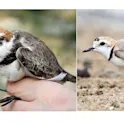
Life sciences
26 Nov 2019
Similar birds actually diverged 500,000 years ago: Frontiers in Genetics
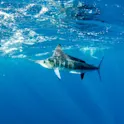
Life sciences
22 Nov 2019
Large areas of the ocean may have insufficient iron for most fish: Frontiers in Marine Science
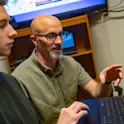
Life sciences
14 Oct 2019
As Asia and Europe battle African swine fever, University of Vermont research shows how farmers’ risk attitudes affect the spread of infectious animal diseases and offers a first-of-its kind model for testing disease control and prevention strategies; Frontiers in Veterinary Science
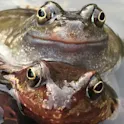
Life sciences
10 Sep 2019
Ranavirus can wipe out entire common frog populations, but researchers say their latest study could help the species; Frontiers in Microbiology
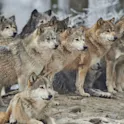
Life sciences
05 Sep 2019
A new study reveals that scientists are divided on issues such as how to remove hybrids and free-roaming dogs, and whether they should be kept captive, sterilised and released or killed; Frontiers in Ecology in Evolution

Life sciences
02 Sep 2019
Waist-to-hip ratio can signal sex, age, pregnancy, parity — as well as capacity for offspring brain development; Frontiers in Psychology

Life sciences
28 Aug 2019
The wild apples in the Tien Shan Mountains represent the main ancestral population for our modern apple. These trees produce large fruits, which are often red when ripe and have a varying array of flavors. These were the ancestors of the trees that people first started to cultivate and spread along the Silk Road. Image: Shutterstock. Apples originally evolved in the wild to entice ancient megafauna to disperse their seeds; more recently, humans began spreading the trees along the Silk Road with other familiar crops; dispersing the apple trees led to their domestication — by Max Planck Institute for the Science of Human History Recent archaeological finds of ancient preserved apple seeds across Europe and West Asia combined with historical, paleontological, and recently published genetic data are presenting a fascinating new narrative for one of our most familiar fruits. In this study, Robert Spengler of the Max Planck Institute for the Science of Human History traces the history of the apple from its wild origins, noting that it was originally spread by ancient megafauna and later as a process of trade along the Silk Road. These processes allowed for the development of the varieties that we know today. Origins of […]

Life sciences
15 Aug 2019
Red-neck phalaropes split between the Pacific Ocean and the Arabian Sea for the colder months, researchers discover; Frontiers in Ecology and Evolution
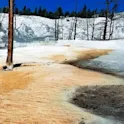
Life sciences
16 Jul 2019
Researchers have identified a gene mutation in cyanobacteria that creates resistance to free radicals, and could be used to accelerate cell growth in biotech applications; Frontiers in Microbiology

Life sciences
11 Jun 2019
Scorpions adapt their stinging, stingers and sting contents to minimize the costs of venom use; Frontiers in Ecology and Evolution
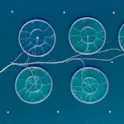
Life sciences
21 May 2019
The respiratory systems of Atlantic salmon function normally despite them carrying a virus that infects red blood cells; Frontiers in Physiology
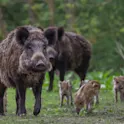
Life sciences
16 May 2019
New study shows wild boar can be immunized against the most significant worldwide threat to the swine industry by a vaccine administered via their food; Frontiers in Veterinary Science

Life sciences
16 Apr 2019
Why do some animals eat or abandon their offspring? According to researchers at the University of Tennessee and the University of Oxford, these might actually be forms of parental care; Frontiers in Ecology and Evolution

Life sciences
03 Apr 2019
In two new species of rare giant stick insects, males turn livid blue or multicolored at sexual maturity; Frontiers in Ecology and Evolution
Get the latest research updates, subscribe to our newsletter